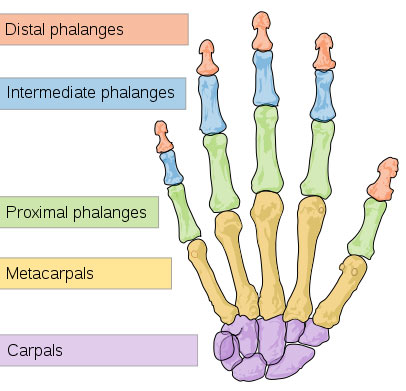Links to word art generators...
https://wordart.com/
https://worditout.com/word-cloud/create
http://www.wordle.net/create
Thursday, January 23, 2020
Wednesday, January 22, 2020
Bones of the Hand
Here is some info to help us with our work on the Skeletal System in science...
http://www.cyh.com/HealthTopics/HealthTopicDetailsKids.aspx?p=335&np=152&id=2458

 As you sit and type at the keyboard, while you swing on a swing, even when you pick up your lunch, you're using the bones in your fingers, hand, wrist, and arm.
As you sit and type at the keyboard, while you swing on a swing, even when you pick up your lunch, you're using the bones in your fingers, hand, wrist, and arm.
https://teachmeanatomy.info/upper-limb/bones/bones-of-the-hand-carpals-metacarpals-and-phalanges/
http://www.cyh.com/HealthTopics/HealthTopicDetailsKids.aspx?p=335&np=152&id=2458

Your Hands
 As you sit and type at the keyboard, while you swing on a swing, even when you pick up your lunch, you're using the bones in your fingers, hand, wrist, and arm.
As you sit and type at the keyboard, while you swing on a swing, even when you pick up your lunch, you're using the bones in your fingers, hand, wrist, and arm.
Each arm is attached to a shoulder blade or scapula (say: SKA-pyuh-luh), a large triangular bone on the upper back corner of each side of the ribcage. The arm is made up of three bones: the humerus (say: HYOO-muh-rus), which is above your elbow, and the radius (say: RAY-dee-us) and ulna (say: UL-nuh), which are below the elbow.
Each of these bones is wider at the ends and skinnier in the middle, to help give it strength where it meets another bone. At the end of the radius and ulna are eight smaller bones that make up your wrist. Although these bones are small, they can really move! Twist your wrist around or wave and you'll see how the wrist can move.
The center part of your hand is made up of five separate bones. Each finger on your hand has three bones, except for your thumb, which has two. So between your wrists, hands, and all your fingers, you've got a grand total of 54 bones — all ready to help you grasp things, write your name, pick up the phone, or throw a softball!
https://teachmeanatomy.info/upper-limb/bones/bones-of-the-hand-carpals-metacarpals-and-phalanges/
Monday, January 13, 2020
Online Articles...
Here are some links to sites with articles for students
https://www.cbc.ca/kidsnews/
https://teachingkidsnews.com/
https://www.tweentribune.com/
https://www.dogonews.com/
https://www.timeforkids.com/
https://newsforkids.net/
https://www.washingtonpost.com/lifestyle/kidspost/
https://kids.nationalgeographic.com/
https://www.cbc.ca/kidsnews/
https://teachingkidsnews.com/
https://www.tweentribune.com/
https://www.dogonews.com/
https://www.timeforkids.com/
https://newsforkids.net/
https://www.washingtonpost.com/lifestyle/kidspost/
https://kids.nationalgeographic.com/
Saturday, January 11, 2020
Reading buddy Time...
Reading buddy fun. It was great to get together with our kinder buddies after the break. The students really look forward to these weekly meetings.


Monday, January 6, 2020
Subscribe to:
Comments (Atom)